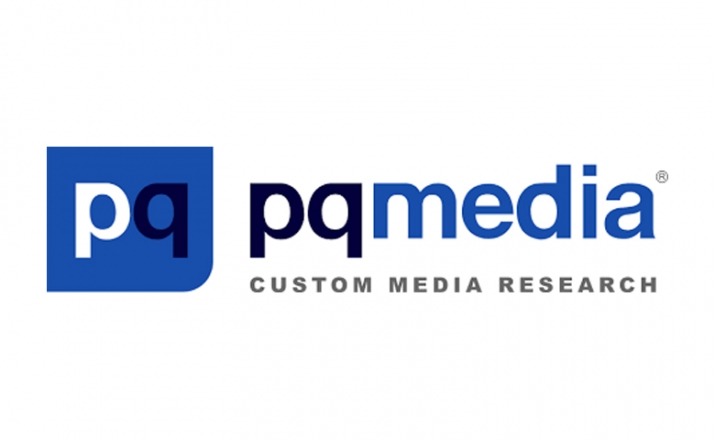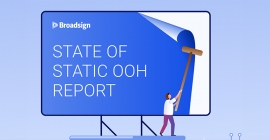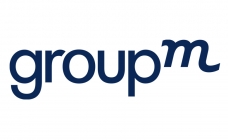New tech, changing consumer audio usage boosting US audio ad spend
By M4G Bureau - November 08, 2021
Audio ad & marketing spending is pacing for 14.4% growth this year to $18.06 billion: PQ Media’s United States Audio Media Forecast 2021
United States audio media advertising & marketing spending, consumer audio usage, and consumer audio spending are all on pace for record growth in 2021, amplified by new tech, changing consumer behaviours and shifting ad budgets, according to new research released today by PQ Media.
United States audio media advertising & marketing spending, as well as consumer audio usage and consumer spending on audio media are all on pace for record growth in 2021, amplified by new technologies, changing consumer behaviours and shifting ad budgets, according to new research released today by PQ Media.
 Audio ad & marketing spending is pacing for 14.4% growth this year to $18.06 billion, the fastest growth rate in 40 years, driven by double-digit increases in OTA, streaming, podcast, satellite and Hispanic audio ad & marketing spend, according to PQ Media’s United States Audio Media Forecast 2021. Podcast advertising is on pace for a 32% surge in 2021, while Hispanic audio ad spend is set to rise 16.5%, OTA advertising is expected to increase 14.2%, and streaming audio ad spend is projected to grow 13.4%.
Audio ad & marketing spending is pacing for 14.4% growth this year to $18.06 billion, the fastest growth rate in 40 years, driven by double-digit increases in OTA, streaming, podcast, satellite and Hispanic audio ad & marketing spend, according to PQ Media’s United States Audio Media Forecast 2021. Podcast advertising is on pace for a 32% surge in 2021, while Hispanic audio ad spend is set to rise 16.5%, OTA advertising is expected to increase 14.2%, and streaming audio ad spend is projected to grow 13.4%.
The caveat to this year’s double-digit growth spikes in audio ad & marketing spending is that they follow the steepest drops on record in 2020, when all media spending was driven down by the deep impact of COVID-19 and the pandemic’s after-effects worldwide. For example, total audio ad spend, of which OTA accounts for 70%, is not expected to reach the pre-pandemic 2019 level until 2023, according to PQ Media.
However, streaming audio advertising, including digital extensions of radio stations and audio subscription services, and podcast ad spend continued to grow at double-digit rates during the pandemic’s apex in 2020 and will post accelerating growth in 2021 to set new ad spend records.
Meanwhile, consumer audio usage is expected to rise 3.3% to an average of 13.7 hours per week in 2021, the quickest uptick in 20 years, fuelled by strong growth across all major audio platforms. OTA audio usage was up 2.7%, streaming media usage, including digital radio station extensions and audio subscription services, also increased 2.7%, while podcast listening surged 9.9% and satellite radio was up 2.5%, according to the United States Audio Media Forecast 2021.
Consumer spending on audio media content and technology is expected to increase 8.3% to $25.96 billion in 2021, as end-user spend on audio content and tech also continued to grow through pandemic-struck 2020 and will continue to grow through 2022. The key growth driver is consumer spending on audio content, including streaming and satellite subscription services, podcasts and digital radio extensions, which has surpassed total audio ad & marketing expenditures, surging 12.4% in 2020, as the pandemic lockdowns supercharged consumer time spent with digital audio. Consumer spending on audio content will grow at an accelerated 12.6% to $19.62 billion in 2021, PQ Media estimates.
“Audio has proven to be a resilient medium since its rise to the fore of the media spectrum in the 1920s, continually adapting to strong challenges posed by the emergence of new technologies, such as television in the 1950s, as well as related changes in consumer behaviours and shifting ad budgets. All three of these critical PEST trends were strongly influenced by COVID-19, but as these key variables evolved with the severe impact of the pandemic in 2020, audio media once again rose to the challenge and showed its staying power with consumers,” said PQ Media CEO Patrick Quinn.
With the continued growth in the popularity of podcasting in 2021 and the increased use of smart technology to listen to digital radio station extensions, traditional OTA broadcasts have remained the most popular audio content consumers listen to in their cars. “When audio media’s three major platforms are combined – OTA, digital and podcasting – audio is a powerhouse medium like no other,” Quinn added.
The US Audio Media Forecast is the only source of comprehensive econometric data and analysis tracking the industry’s three KPIs – audio advertising & marketing spend; consumer audio usage; and consumer spend on audio content and tech. The new Forecast is differentiated from other recent industry research in that it includes exclusive data and confidential insights provided by leading audio media companies; radio station and network groups; digital streaming audio services; podcast producers; audio advertising agencies; and media investment firms.
Among other key trends revealed in this ground-breaking market research study are the following:
- AM/FM will remain the primary way consumers access audio through 2023, far outweighing consumer time spent with Spotify and Pandora;
- Content is king, as listenership will rise in audio segments that provide new, more engaging content, such as multicultural-focused programming on AM/FM stations, the emergence of new podcasting genres and riveting Q&A interviews on social media audio;
- Podcasting has become the sexiest audio media channel, enticing more brands to audio that, previously, had not included this medium in their omnichannel advertising and marketing campaigns;
- Hispanic audio – both digital and traditional – has emerged as a major force in the overall audio media industry, as Hispanic OTA advertising is pacing up 16.6% in 2021, while Hispanic streaming audio ad spend is expected to grow 14.8% this year, and Hispanic podcast advertising is projected to surge 38.5%, according to PQ Media.
“Growth in burgeoning Hispanic audio media market is being driven by several key factors, including this demographic’s increased share of the total US population, which is now 19%, indicating growth of 22% from 2010-2020 to 62 million. In addition, the number of radio stations programming Hispanic-focused content during the past decade grew 20% to approximately 1,200 stations nationwide,” Quinn said.

Stay on top of OOH media trends









